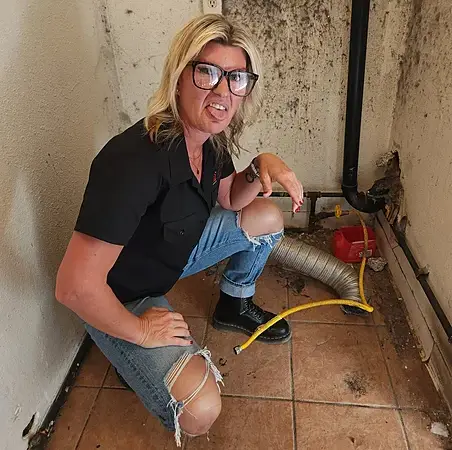Inheriting a home after the death of a loved one can be bittersweet. Although you may have just received an asset that’s worth a lot of money, you’re also most likely experiencing shock, grief and confusion. It can be overwhelming!
Whether the property is paid off, still has a mortgage or needs significant repairs, you do have options. This guide will walk you through what typically happens when you inherit a home and the paths you can take.
If that’s where you are right now--burned out, unsure of what to do next and essentially just done--this guide is for you. Here are the best options available to Southern California landlords who are ready for a change.
How Do You Inherit a Property?
When someone passes away, their assets, including any real property, usually go through a legal process called probate. There are exceptions for assets held in a trust or jointly owned with survivorship rights. In these cases, the assets are immediately transferred to the trust (managed by the executor specified in the trust) or surviving party.
If the property goes to probate, the court reviews the decedent’s will (if there is one) and determines who the executor and legal heirs are. The executor manages the estate, including any real property. Once all legal requirements are met, the title of the real property is transferred to the heirs. Depending on how the property was owned and the state laws, the probate process can take a few months to over a year.

Your Options as a New Inherited Property Owner
Once the property is officially yours, you have several options, each with its own pros and cons.
1. Move In
If you’d like to keep the home and make it your residence, that’s great! Just be sure to consider property taxes, insurance, maintenance costs and any outstanding mortgage. Even when you inherit a home, it can be very expensive to maintain!
2. Rent It Out
This can provide consistent income, especially if the home is in good shape and located in a desirable area. However, you’ll need to be prepared for the responsibilities of being a landlord. You’ll also want to calculate whether or not the rental income will cover all the property expenses or if you’ll need to come out of pocket each month.
One of the biggest expenses is property taxes. Because renting the house would make it an investment property, Prop 19 may require a reassessment of the property value, which is what property taxes are based on. This means the property taxes could increase significantly over what the decedent was paying. Check with your tax advisor to figure out your potential property taxes.
3. Sell the Property
Selling may be the best option if you don’t want to live in or manage the home.
The quickest and simplest sale would be an off-market as-is sale. That means you don’t make any repairs to the home and sell it quickly (usually for cash) to an investor who will handle all that hassle. An off-market sale has the added benefit of not having to pay agent commissions or have open houses where strangers are touring your home while you’re not there.
If you’re not in a hurry and don’t mind dealing with real estate agents, open houses, making repairs and long escrows, a conventional on-market sale might be an option for you. The trade-off for all the troubles associated with a conventional sale is that you will usually get the most money for the property. Just be sure that the increased sales price is enough to cover the commission, repairs, and the value of your time.
4. Dealing With Other Heirs
If you aren’t the only one who has inherited an interest in the property, the above options become a little more complicated. All of the owners will usually have to agree on one of those three options.
It is possible to just sell your interest in the property if the other owners do not want to sell. They might even want to buy your interest if they have the means to do so. However, the most common option when the owners cannot agree is to sell the property and split the proceeds.
What About Capital Gains Taxes?
The good news is that inherited properties typically receive a “stepped-up” basis for capital gains tax purposes and that means you could potentially pay less capital gains taxes when you sell the house in the future than the decedent would have paid if they sold the house.
Basis is the value of the house when it was acquired. If a house is purchased, the basis is usually equal to the purchase price. In the case of an inheritance, the basis is determined by an appraisal of the property’s value on the day of the decedent’s death.
A capital gain is the difference between the price you receive when you sell an asset and the basis. For example, if you bought or inherited a house with a basis of $500,000 and then sold that house two years later for $600,000, your capital gain is $100,000.
And if that isn’t complicated enough, there is an exemption from capital gains taxes for the first $250,000 (if filing Single, Head of Household or Married Filing Separately) or $500,000 (if filing Married Filing Jointly). This is definitely a topic you want to cover with your tax advisor.
What if the Property Has a Mortgage?
If the home still has a mortgage, it will still need to be paid. You may need to assume the loan or refinance it into your name. Some lenders allow heirs to take over the payments without a full credit approval process. If the payments are unaffordable, you might consider selling before the loan goes into default.
If the property has a reverse mortgage, the lender usually gives the heir(s) time for the property to go through probate before they call the loan due. Once the loan is called due, the heir will have to pay it off, refinance or sell the home.

Feeling Overwhelmed? You’re Not Alone.
Inheriting a home can feel like a blessing, a burden or both. It’s okay to take time to grieve, ask questions and figure out the best path forward. Whether you want to keep the home, rent it, sell it fast for cash or with an agent, you have options and we are here to assist.
We specialize in helping heirs navigate the complicated issues associated with inherited properties with compassion, clarity and zero pressure. If you’re unsure what to do next, we offer free consultations and fair, no-obligation cash offers for homes in any condition.
Contact us today to discuss your options and find the best path forward on your terms.
We Offer A Stress-Free Solution!
We will do our best to bring you an offer that works! We will handle everything so you don’t have to! Remember, it’s 100% FREE and there is never any obligation to accept.

